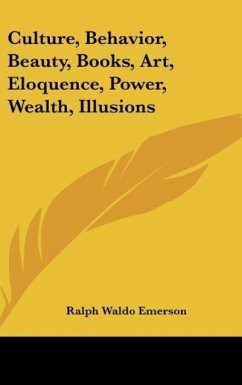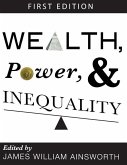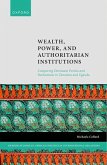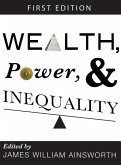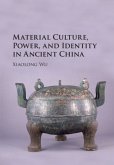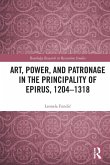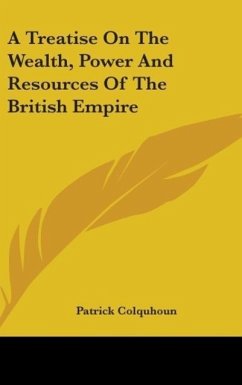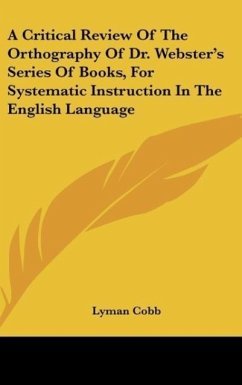Ralph Waldo Emerson
Culture, Behavior, Beauty, Books, Art, Eloquence, Power, Wealth, Illusions
Ralph Waldo Emerson
Culture, Behavior, Beauty, Books, Art, Eloquence, Power, Wealth, Illusions
- Gebundenes Buch
- Merkliste
- Auf die Merkliste
- Bewerten Bewerten
- Teilen
- Produkt teilen
- Produkterinnerung
- Produkterinnerung
This book is a facsimile reprint and may contain imperfections such as marks, notations, marginalia and flawed pages.
Andere Kunden interessierten sich auch für
![Wealth, Power, and Inequality Wealth, Power, and Inequality]() Wealth, Power, and Inequality187,99 €
Wealth, Power, and Inequality187,99 €![Wealth, Power, and Authoritarian Institutions Wealth, Power, and Authoritarian Institutions]() Michaela Collord (School of Politics Assistant Professor and InterWealth, Power, and Authoritarian Institutions161,99 €
Michaela Collord (School of Politics Assistant Professor and InterWealth, Power, and Authoritarian Institutions161,99 €![Wealth, Power, and Inequality Wealth, Power, and Inequality]() James William AinsworthWealth, Power, and Inequality351,99 €
James William AinsworthWealth, Power, and Inequality351,99 €![Material Culture, Power, and Identity in Ancient China Material Culture, Power, and Identity in Ancient China]() Xiaolong Wu (Indiana Hanover College)Material Culture, Power, and Identity in Ancient China140,99 €
Xiaolong Wu (Indiana Hanover College)Material Culture, Power, and Identity in Ancient China140,99 €![Art, Power, and Patronage in the Principality of Epirus, 1204-1318 Art, Power, and Patronage in the Principality of Epirus, 1204-1318]() Leonela FundicArt, Power, and Patronage in the Principality of Epirus, 1204-131842,99 €
Leonela FundicArt, Power, and Patronage in the Principality of Epirus, 1204-131842,99 €![A Treatise On The Wealth, Power And Resources Of The British Empire A Treatise On The Wealth, Power And Resources Of The British Empire]() Patrick ColquhounA Treatise On The Wealth, Power And Resources Of The British Empire54,99 €
Patrick ColquhounA Treatise On The Wealth, Power And Resources Of The British Empire54,99 €![A Critical Review Of The Orthography Of Dr. Webster's Series Of Books, For Systematic Instruction In The English Language A Critical Review Of The Orthography Of Dr. Webster's Series Of Books, For Systematic Instruction In The English Language]() Lyman CobbA Critical Review Of The Orthography Of Dr. Webster's Series Of Books, For Systematic Instruction In The English Language30,99 €
Lyman CobbA Critical Review Of The Orthography Of Dr. Webster's Series Of Books, For Systematic Instruction In The English Language30,99 €-
-
-
This book is a facsimile reprint and may contain imperfections such as marks, notations, marginalia and flawed pages.
Hinweis: Dieser Artikel kann nur an eine deutsche Lieferadresse ausgeliefert werden.
Hinweis: Dieser Artikel kann nur an eine deutsche Lieferadresse ausgeliefert werden.
Produktdetails
- Produktdetails
- Verlag: Kessinger Publishing, LLC
- Seitenzahl: 224
- Erscheinungstermin: 25. Juli 2007
- Englisch
- Abmessung: 235mm x 157mm x 18mm
- Gewicht: 521g
- ISBN-13: 9780548134955
- ISBN-10: 0548134952
- Artikelnr.: 23104228
- Herstellerkennzeichnung
- Libri GmbH
- Europaallee 1
- 36244 Bad Hersfeld
- gpsr@libri.de
- Verlag: Kessinger Publishing, LLC
- Seitenzahl: 224
- Erscheinungstermin: 25. Juli 2007
- Englisch
- Abmessung: 235mm x 157mm x 18mm
- Gewicht: 521g
- ISBN-13: 9780548134955
- ISBN-10: 0548134952
- Artikelnr.: 23104228
- Herstellerkennzeichnung
- Libri GmbH
- Europaallee 1
- 36244 Bad Hersfeld
- gpsr@libri.de
Ralph Waldo Emerson was an American essayist, lecturer, philosopher, and poet who led the transcendentalist movement of the mid-19th century. He was seen as a champion of individualism and a prescient critic of the countervailing pressures of society, and he disseminated his thoughts through dozens of published essays and more than 1,500 public lectures across the United States.Emerson gradually moved away from the religious and social beliefs of his contemporaries, formulating and expressing the philosophy of transcendentalism in his 1836 essay "Nature". Following this work, he gave a speech entitled "The American Scholar" in 1837, which Oliver Wendell Holmes Sr. considered to be America's "intellectual Declaration of Independence."Emerson wrote most of his important essays as lectures first and then revised them for print. His first two collections of essays, Essays: First Series (1841) and Essays: Second Series (1844), represent the core of his thinking. They include the well-known essays "Self-Reliance", "The Over-Soul", "Circles", "The Poet", and "Experience." Together with "Nature", these essays made the decade from the mid-1830s to the mid-1840s Emerson's most fertile period. Emerson wrote on a number of subjects, never espousing fixed philosophical tenets, but developing certain ideas such as individuality, freedom, the ability for mankind to realize almost anything, and the relationship between the soul and the surrounding world. Emerson's "nature" was more philosophical than naturalistic: "Philosophically considered, the universe is composed of Nature and the Soul." Emerson is one of several figures who "took a more pantheist or pandeist approach by rejecting views of God as separate from the world."[6]He remains among the linchpins of the American romantic movement,[7] and his work has greatly influenced the thinkers, writers and poets that followed him. When asked to sum up his work, he said his central doctrine was "the infinitude of the private man." Emerson is also well known as a mentor and friend of Henry David Thoreau, a fellow transcendentalist.Ralph Waldo Emerson (May 25, 1803 - April 27, 1882)[5] was an American essayist, lecturer, philosopher, and poet who led the transcendentalist movement of the mid-19th century. He was seen as a champion of individualism and a prescient critic of the countervailing pressures of society, and he disseminated his thoughts through dozens of published essays and more than 1,500 public lectures across the United States.Emerson gradually moved away from the religious and social beliefs of his contemporaries, formulating and expressing the philosophy of transcendentalism in his 1836 essay "Nature". Following this work, he gave a speech entitled "The American Scholar" in 1837, which Oliver Wendell Holmes Sr. considered to be America's "intellectual Declaration of Independence."[6]Emerson wrote most of his important essays as lectures first and then revised them for print. His first two collections of essays, Essays: First Series (1841) and Essays: Second Series (1844), represent the core of his thinking. They include the well-known essays "Self-Reliance",[7] "The Over-Soul", "Circles", "The Poet", and "Experience." Together with "Nature",[8] these essays made the decade from the mid-1830s to the mid-1840s Emerson's most fertile period. Emerson wrote on a number of subjects, never espousing fixed philosophical tenets, but developing certain ideas such as individuality, freedom, the ability for mankind to realize almost anything.

